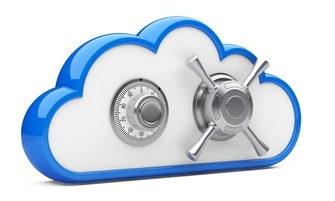![]()
We traditionally provide docSAFE to the professions who demand top security and client confidentiality (among other things). However we are seeing docSAFE rise in popularity with other sectors, almost by accident but with very good reason.
You may have seen a mailer we sent out recently that illustrated how the NHS had suffered a huge breach of data of its junior doctors in the north-east. We researched this and found that the NHS staff use of WhatsApp is also widespread which is really worrying.
Organisations that hold any personal data, especially publicly accountable organisations, should be using systems to communicate that are extremely secure. docSAFE has been designed to be secure on a number of key levels – secure login (using 2-factor authentication), secure portal in which to exchange messages and documents, online signing, to be GDPR compliant, offer automatic backups to secure EU based servers and much more.
By using a portal instead of email, for example, the message sit in the cloud until the recipient accesses it. By return, the responses sit in the cloud until the sender accesses it. Both are notified and know the information is there – but it’s locked away safely, staying put, not flying through the ether.
We are expecting more uptake of docSAFE by schools, colleges, universities, doctors and hospitals and similar organisations where security simply cannot be the weak link. Talk to us if you think we can help with your secure communications.
 For any professional managing information on behalf of clients, email is dead. It is not secure and highly susceptible to human error. How many times have you sent information to or received information from the wrong source? I am regularly wrongly emailed client documents by a highly intelligent, trusted professional simply because I have a very similar name to his client. It is completely understandable but it could have any number of repercussions.
For any professional managing information on behalf of clients, email is dead. It is not secure and highly susceptible to human error. How many times have you sent information to or received information from the wrong source? I am regularly wrongly emailed client documents by a highly intelligent, trusted professional simply because I have a very similar name to his client. It is completely understandable but it could have any number of repercussions. The new GDPR comes into effect in 2 years from now. That might seem a long way off but it is barely enough time to understand the changes and put everything into place for total compliancy. What are we talking about? The new GDPR replaces the Data Protection Act as we have come to know it. It has serious implications for any business holding customer information – this includes businesses that sell products and services and also those who monitor customer behaviour (in any way – research, social media etc) of EU citizens.
The new GDPR comes into effect in 2 years from now. That might seem a long way off but it is barely enough time to understand the changes and put everything into place for total compliancy. What are we talking about? The new GDPR replaces the Data Protection Act as we have come to know it. It has serious implications for any business holding customer information – this includes businesses that sell products and services and also those who monitor customer behaviour (in any way – research, social media etc) of EU citizens. “On May 17, 2016, we became aware that data stolen from LinkedIn in 2012 was being made available online. This was not a new security breach or hack. We took immediate steps to invalidate the passwords of all LinkedIn accounts that we believed might be at risk. These were accounts created prior to the 2012 breach that had not reset their passwords since that breach.”
“On May 17, 2016, we became aware that data stolen from LinkedIn in 2012 was being made available online. This was not a new security breach or hack. We took immediate steps to invalidate the passwords of all LinkedIn accounts that we believed might be at risk. These were accounts created prior to the 2012 breach that had not reset their passwords since that breach.”